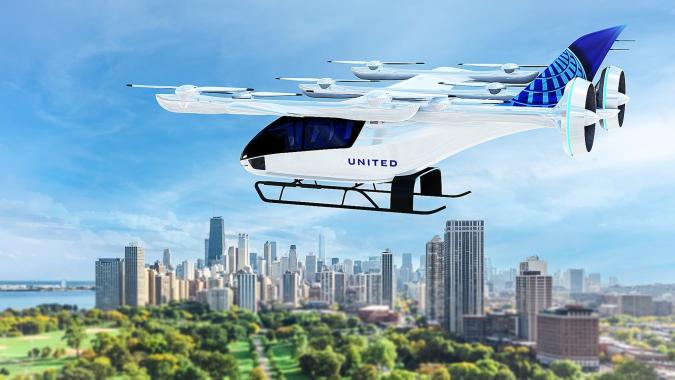The flying taxi industry is being expanded by United Airlines. The airline not only invested $15 million in Eve Air Mobility, but it also placed an order for 200 flying taxis and has an option for an additional 200. As early as 2026, United anticipates acquiring Eve’s four-seat electric vertical take-off and landing (eVTOL) aircraft.

According to the corporation, Eve’s partnership with Embraer and its trust in the urban air transportation sector both served as catalysts for its investment. Embrarer previously collaborated with Uber on a flying taxi project that the latter finally abandoned; according to United, Embrarer is “a trusted aircraft manufacturer with a proven track record of producing and certifying aircraft during the company’s 53-year history.” The typical fixed wings, rotors, and pushers on Eve’s flying taxi have a design that, according to United, promotes security, effectiveness, dependability, and certifiability. According to United, the vehicle may “lower noise levels by 90% compared to existing conventional aircraft,” and it is reported to have a range of 60 miles.
United has previously secured an arrangement with an eVTOL business. It made a $10 million deposit with another California-based company last month to purchase 100 flying taxis. In order to expand its fleet, the business has lined up as many as 500 flying taxis. With the goal of supporting its target to achieve net zero emissions by 2050 without relying on conventional carbon offsets, United has established a corporate venture fund. Additionally, it has made investments in sustainable fuel and hydrogen fuel cell engines through the United Airlines Ventures fund. Michael Leskinen, president of United Airlines Ventures, stated in a statement that “Today, United is making history once again, by becoming the first major airline to openly invest in two eVTOL startups.” Together, we think that our collection of clean energy technologies will transform air travel as we currently know it and help the aviation sector transition to a more sustainable future.



